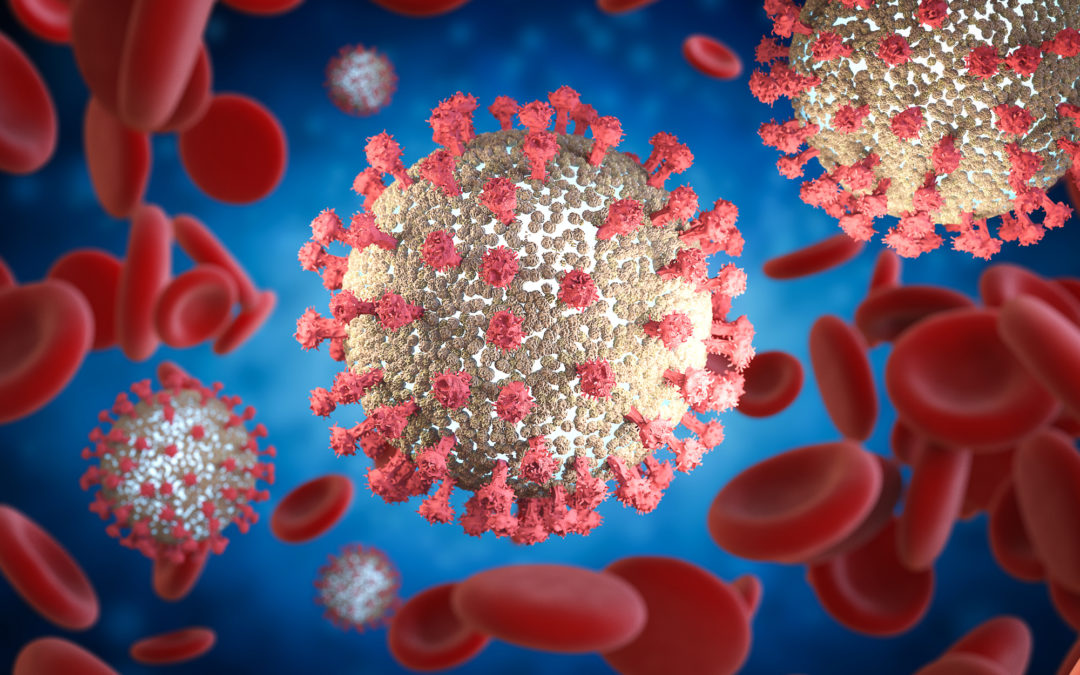In addition to serious illness or death, the Coronavirus or COVID-19 has been found to cause long term changes to our nervous system and insomnia. Interestingly enough, sleep could potentially play an important role in fighting back.
Feixiong Cheng, a data analyst at the Cleveland Clinic, started looking for a treatment when the newly discovered coronavirus had killed just several dozen people. Cheng had seen similar types of coronavirus in China and Saudi Arabia in the past, where it sickened thousands and affected the economy around the globe. Once Covid-19 surfaced, his lab immediately observed the structure of the virus. They attempted to use Artificial intelligence to research how to predict or stop it from invading human cells. One observation looked promising, the virus could possibly be stopped by melatonin.
How Melatonin Helps With Immunity
Melatonin wasn’t the most obvious consideration for stopping a pandemic. Its most familiar role is aiding in the regulation of circadian sleep rhythms. As each day grows dark, it simply lets your body know that it’s nighttime so you can fall asleep easier. The findings on melatonin were very preliminary, including research from a small study before COVID-19 even had a name.
Scientists around the world contacted Cheng after he published his research in March of 2020. In addition to melatonin’s effects on sleep, they recognized its role in calibrating the immune system. In essence, sleep helps keep our self-protective responses functioning properly. If our protective response happens to go haywire, a mild case of COVID-19 can quickly turn into a life-threatening scenario.
COVID-19 Patients Treated With Melatonin
Cheng and his colleagues were able to compile data from thousands of Covid patients who were treated in their facility. Melatonin continued to be noticed, as those taking it had remarkably lower odds of contracting COVID-19. Similar patterns were found in other research studies. In a Columbia University study, they found that intubated patients who received melatonin had better survival rates. In fact, when President Donald was treated at the Walter Reed National Military Medical Center for COVID-19, he was prescribed melatonin in addition to many other experimental therapies.
If there is a correlation between melatonin and improving the treatment of COVID-19 patients, then it will be one of the most readily available and cheaper remedies out there. Or perhaps, is it something else that is actually improving the outcome of COVID-19 treatment? Cheng and other researchers propose the real solution may not be melatonin alone, but more importantly what it controls: sleep.
Sleep and COVID-19
In the past year, the Johns Hopkins University department of neurology has noticed a massive influx of people suffering from insomnia. Rachel Salas, one of the neurologists, originally thought the spike in sleep disorders was the result of anxiety related to the global pandemic. Anxieties such as: worrying about the economy, isolation, health, and even death. Sleep disruption has been seen around the world this past year due to the Coronavirus, some even called it “COVID-Somnia.”
The majority of sleep scientists seem to agree that the most crucial part of promoting sleep is regulating your body’s melatonin cycles. This would be the preferred method, rather than merely taking a supplement and continuing to stare at a screen in bed. The key to good sleep even during a pandemic is to build a routine:
- It is important to wake up and go to bed at the same time, even on the weekends.
- Get sunlight early in the day and make sure you exercise regularly.
- Reduce all sources of blue light at least one hour before bed.
- Keep meaningful relationships despite being physically distant.
- The best way to improve sleep at night is to create a quiet and relaxing place to rest.
Not only does the virus affect our sleep, but it also affects the nervous system in unpredictable ways, and in some cases causes long-term symptoms. Even after people have recovered, they are reporting headaches, brain fog, muscular weakness, insomnia, and changes in their attention. Doctors fear this is just the beginning of what we’re going to see down the road.
Rely On A Sleep Professional in Hayden, ID
Understanding and appreciating the link between sleep and COVID-19 could be crucial to slowing the spread of the virus. There are many significant health benefits of getting restful sleep. If you or a loved one are suffering from insomnia, sleep apnea, or other sleep problems, there is help. Consult with a sleep professional today by contacting Just Breathe DDS at (208) 500-3030. We can help you breathe better, sleep better, and live better!
References
https://onlinelibrary.wiley.com/doi/full/10.1111/jpi.12683
https://www.ncbi.nlm.nih.gov/pmc/articles/PMC7242729/
https://www.theatlantic.com/health/archive/2020/12/covid-19-sleep-pandemic-zzzz/617454/

